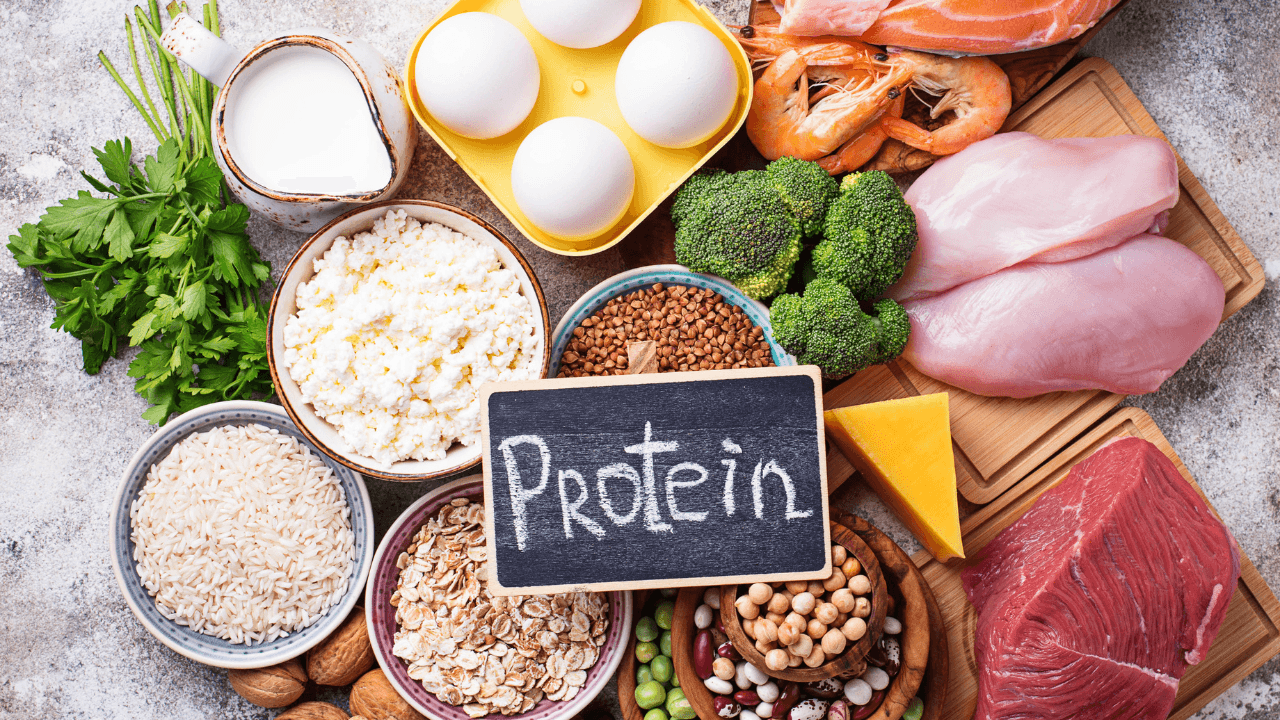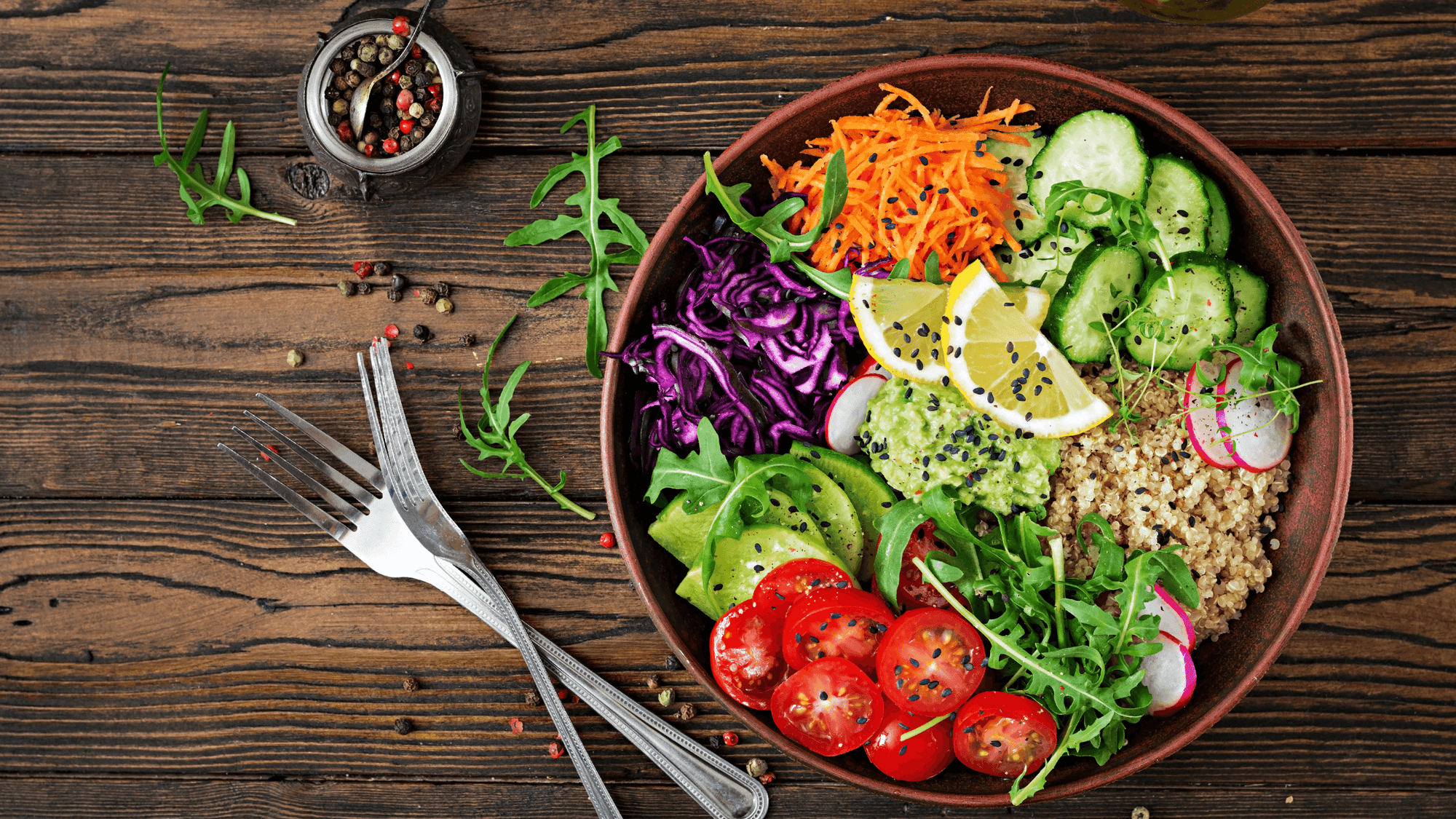Protein is one of the three main sources of energy and nutrients in the human body. It is necessary for good health, as it helps build and repair muscles, bones, and organs.
You may have heard of protein diets for weight loss, such as the famous Atkins diet. This diet is gaining popularity worldwide because it can help you feel fuller longer and help you lose weight. In recent years, the fitness industry has grown rapidly due to the focus on health and fitness. Protein powders, protein bars, protein drinks, and protein snacks have gained popularity, leading to an increase in the protein craze.

This article provides comprehensive information on high protein diets, enabling you to follow this diet appropriately. Let's take a look at it together.
What is a high protein diet?
Generally, the RDA recommends consuming 0.8g of protein per kg of body weight per day. The heavier you are, the more protein you need. This equates to about 10% of your total daily calorie intake coming from protein. A high-protein diet is when you consume more protein than the standard, and your calorie source is greater than 15% from protein.
Here are the recommended protein standards for various groups of people on a high-protein diet:
- Sedentary people: the necessary daily amount of protein is about 0.8-1.2g/kg*body weight.
- Good endurance athletes: daily protein requirement of approx. 1.6 g/kg*bw.
- Excellent resistance athletes: at the beginning of the training period, the daily protein requirement is about 1.5-1.7g/kg body weight. After stabilization, the protein requirement decreases to approximately 1.0-1.2 g/kg*bw/day.
It is important to note that, on this basis, a diet that chronically contains more than 1.6 times the amount of protein required by the body is considered to be excessively high in protein.

Why is a high-protein diet good for weight loss?
A diet with lots of protein and little fat is better than a diet with lots of carbs and little fat for losing weight.This is due to the following:
- Foods high in protein can slow the rate at which food leaves your stomach, which can help you feel full for a longer period of time.
- Eating refined carbohydrates like white rice, pasta, and potatoes can cause fast spikes and drops in blood sugar levels, sort of like a roller coaster. Instead, choosing protein-rich foods can lead to a more gradual increase in blood sugar and help avoid the rapid drop and hunger caused by easily digested carbs. This can make you feel hungry soon after eating. Protein-rich foods keep you feeling full longer.
- Consuming a high-protein diet helps prevent muscle loss during muscle training. This is due to the amino acids that support muscle growth and increase muscle mass, leading to a higher metabolic rate and increased calorie burn throughout the day.

High Protein Good for Your Health Foods
Foods like lean meats, fish, nuts, beans, and whole grains are all good sources of protein. Proteins come from either plants or animals. Whether from plants or animals, protein has the same benefits for your health. The only variation is the combination of proteins you get. If you're a vegetarian, know that plant proteins are often incomplete. To ensure you obtain essential proteins, enrich your recipes with a variety of foods that complement each other.

If you want to follow a high-protein diet, stay away from processed meats and opt for high-quality proteins such as:
- Soy protein
- Beans
- Nuts
- Fish
- Skinless lean chicken
- Lean Beef
- Pork
- Low-fat dairy products
The quality of the carbohydrates consumed is also important. Reduce processed carbohydrates in your diet, such as chips and crackers. Choose carbohydrates that are rich in fiber and nutrients, such as whole grains, vegetables and fruits.

Potential Harms of High-Protein Diets
Usually, dietary protein intake does not usually cause any health problems for most people. However, excessive protein intake can be harmful to the body, which can lead to a host of problems:
- Long-term consumption of a high-protein diet can affect the cardiovascular system, increasing the incidence of hypertension, coronary heart disease, and atherosclerosis.
- For the general public, high protein diets can lead to enhanced gluconeogenesis, which further creates a higher glycemic load, leading to increased insulin secretion and an increased risk of diabetes.
- High-protein diets may also lead to excessive ketone production, which can stress the liver and kidneys.
- Excessive protein intake affects calcium metabolism, in which high protein forms high oxaluric acid, thereby increasing the risk of calcium oxalate formation. Thus, a high protein diet is positively associated with kidney stones.
- It is important to note that a high protein diet containing high amounts of purines may exacerbate gout and joint inflammation. This is because uric acid may accumulate in the joints and cause inflammation.
- When there is not enough protein, the immune system is not getting enough of the nutrients it needs, which can negatively affect the immune system. When there is too much protein, the high protein level can lead to protein metabolism disorders, reducing immune activity and cell phagocytosis, which can lead to immunosuppression and lowered immunity.
- Excessive intake of proteins, especially collagen and serum proteins, also exacerbates the Medlar reaction, producing excessive protein glycosylation end products (AGEs). Such products can interfere with body functions and accelerate aging.
In conclusion, there are some risks associated with high-protein diets. Before starting a high-protein diet, consult your doctor for advice, especially if you have kidney or liver problems.



